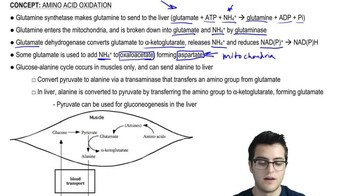Textbook Question
The structural level of a protein least affected by a disruption in hydrogen bonding is thea. primary level.b. secondary level.c. tertiary level.d. quaternary level.
2669
views
 Verified step by step guidance
Verified step by step guidance Verified video answer for a similar problem:
Verified video answer for a similar problem:

